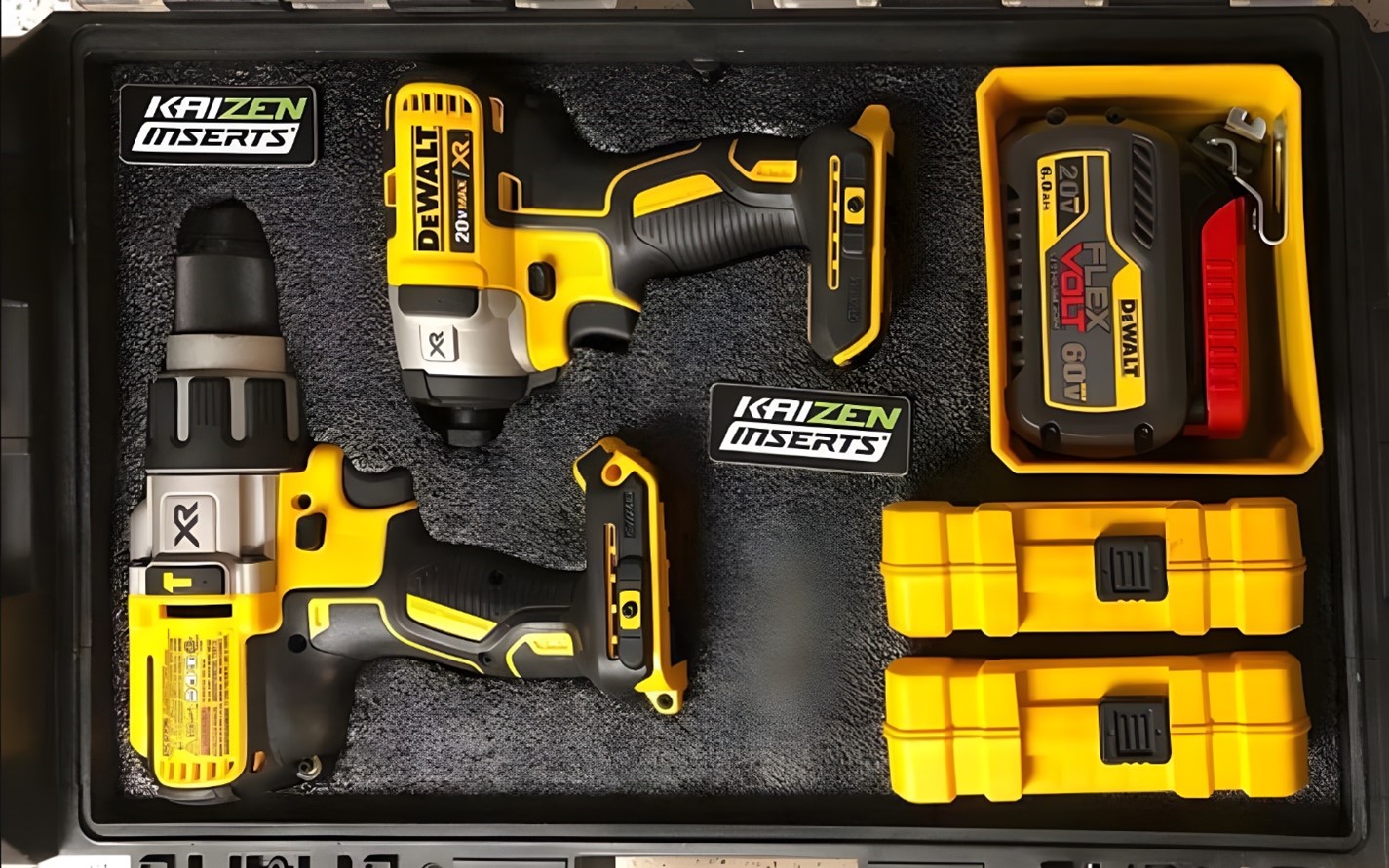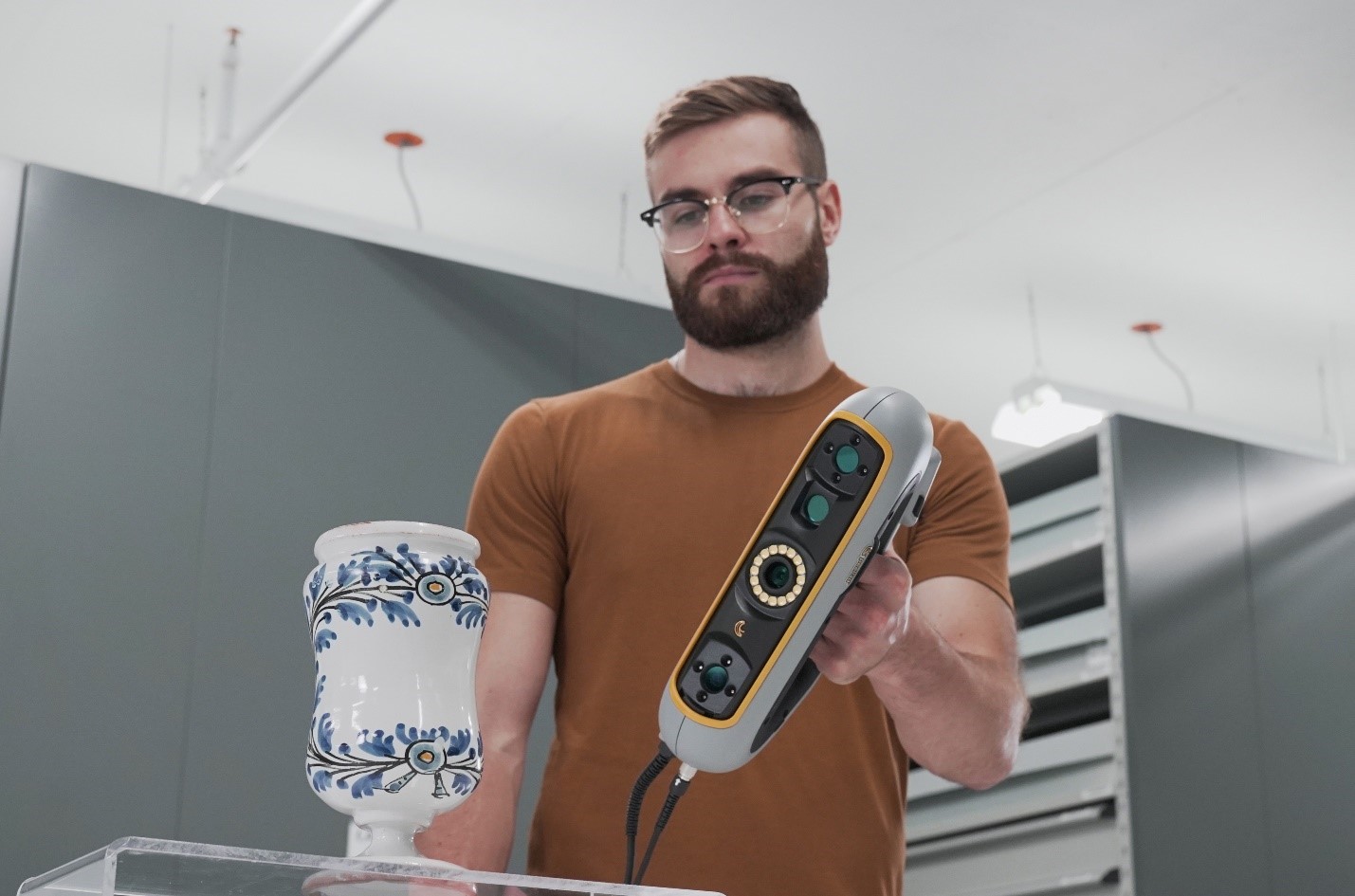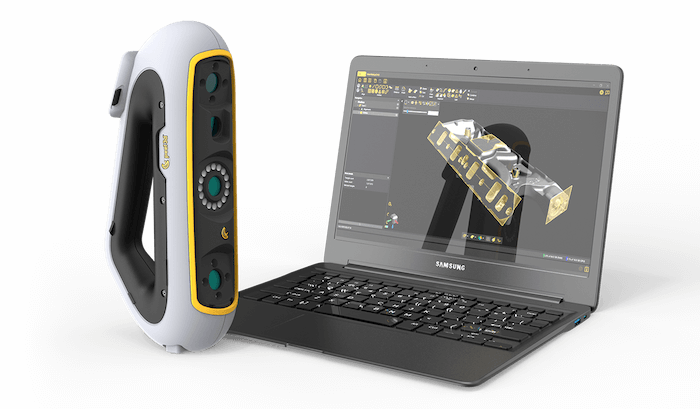Enhance Equipment Safety During Transportation with Tailored Foam Inserts and Protection Solutions
When it comes to safeguarding valuable equipment and tools during transportation, one cannot underestimate the importance of reliable protective solutions.
Transportation cases come in a wide variety of shapes and sizes, but their interiors are not always ideal for storing items as one might expect. Many cases feature internal ridges, dividers, or specific shapes designed to accommodate specialized equipment, such as the presence of wheels or a deployable carrying handle. However, this lack of flexibility in terms of interior designs oftentimes leaves tools and equipment vulnerable to damage.
That's where the importance of custom foam inserts becomes evident. These inserts are meticulously tailored to fit the unique contours of both the case's interior and the equipment it houses. By seamlessly adapting to the case's internal features, custom foam inserts ensure a precise and secure fit, leaving no room for movement or potential damage during transit.
KCI Tools is a Canadian-based developer of a wide range of organizational products that feature innovative kaizen foam inserts to effectively store tools either in tool drawers or on walls. The company has carved an enviable reputation for its high-quality custom foam inserts. KCI Tools allows customers to create custom slots that are precisely tailored to their storage systems.
The challenge: Time-consuming trial and error for design templates
While KCI Tools’ customizable foam inserts are highly popular, the team nevertheless faced design challenges. They essentially had to create raw templates for each transportation case. They started by assessing what types of inserts were required, taking the measurements manually, creating rough designs using a digital die-cutting system, testing them, identifying gaps and continuously adjusting until everything fit perfectly. Needless to say, the trial-and-error approach was time-consuming, with frequent inaccuracies and a lot of wasted foam. This is also where using a professional grade 3d scanner (instead of a consumer grade) ensures the expected level of accuracy and performance required to make manufactured parts fit perfectly.

Power tools are securely stored within a custom-made kaizen foam insert, ensuring optimal protection inside a durable and rugged hard case.
The solution: Leveraging the performance of a peel 3 3D scanner
The team at KCI Tools decided to look into new tools to help experts streamline their customized kaizen foam insert production process. They immediately turned their attention to peel 3d’s affordable, professional-grade 3D scanners.
In addition to being able to capture highly accurate 3D measurements of all types of shapes and intricate geometries, the peel 3 scanner’s compact form factor enabled scanning within carrying cases, facilitating the creation of foam inserts perfectly tailored to each case's interior. With peel 3, the process of capturing precise measurements became effortless and efficient.
Some objects or materials may present difficulties for scanning, such as surfaces that are shiny, translucent, or pitch black. However, there are effective techniques to overcome these limitations. One such technique KCI Tools used was a spray powder to improve the scan quality. By applying a fine layer of spray powder on the object's surface, even difficult-to-scan areas can be compensated for, enhancing the overall scan quality. This allows for more accurate capture of the object's shape, ensuring precise measurements for designing the custom foam inserts for a perfect fit.

Performing a 3D scan of a priceless museum artifact. The resulting high-resolution image will serve as a basis for creating a custom-designed protective casing, ensuring the safe transportation of the artifact.
Creating a seamless bridge to design with peel.CAD
A critical aspect of custom foam inserts lies in their specific designs, which is why it was crucial for KCI tools to be able to import captured 3D data into CAD software. This extraction process involves creating various geometric entities, such as planes, spheres, cones, cylinders, and more, which serve as the building blocks for designing the foam inserts.
Furthermore, when dealing with complex and organic shapes, the scanned data can be converted into Non-Uniform Rational B-Spline (NURBS) surfaces. These NURBS surfaces offer superior adaptability in CAD software, allowing for precise foam insert designs that perfectly match the contours of the equipment or tools.

Hard cases come in all shapes or forms. They all have their particularities and internal ridges and components, making 3D scanning especially useful to ensure proper fit of custom-made foams.

A customized hard case with a tailored foam insert and supplementary equipment.
The results: 3D scanning levels up KCI Tool’s design and production processes
KCI Tools started using the peel 3D scanner in their design and production workflows—and the results were almost immediate. The accuracy of the 3D scans eliminated the complicated and lengthy trial and error when making a customer’s specific foam inserts, thereby minimizing material waste and contributing to a reduction in material costs.
Manufacturing timelines were also significantly reduced, which meant customers got their orders sooner. With the unprecedented speed at which team members could acquire 3D measurements, KCI Tools was even able to expand capacity and cater to more types of transportation cases. In fact, entire series of hard cases from a variety of different brands can now benefit from KCI Tools’ kaizen foam inserts.
“The introduction of the peel 3D scanner has revolutionized our custom foam insert production process. With its ability to capture highly accurate 3D measurements and its compact form factor, it has streamlined our operations. We can now create foam inserts perfectly tailored to each case's interior effortlessly and efficiently”
Tips for acquiring a professional grade 3D scanner
For businesses like KCI Tool, purchasing a 3D scanner was considered an investment—not an expense—to optimize operations. When exploring affordable 3D scanners for your company’s needs, you can’t just look at the price tag. The cheapest option may be tempting, but there are a few caveats to keep in mind:
- Does the scanner come with both the hardware and software? 3D scanning software is a critical component for configuring the parameters of your scans, cleaning your work surface, and merging, aligning, colourizing and improving the scans for further CAD processing.
- What is the level of manufacturing quality, and where was the 3D scanner made? Relying on robust North American designs can go a long way to maximizing your investment and ensuring long-term reliability and performance.
- Is customer support and assistance available? Many suppliers of cheap 3D scanners offer very limited support and training. If your company doesn’t have any 3D scanning experts, at least in the beginning, it is essential to be able to count on a 3D scanning partner with offices worldwide and with localized support.
Interested in learning more about how peel’s 3D scanners can transform your design and manufacturing capabilities without breaking the bank? Contact us today!
Wonder how Peel 3D can transform your work, solve problems, and save you time?
Contact our Peel 3D experts